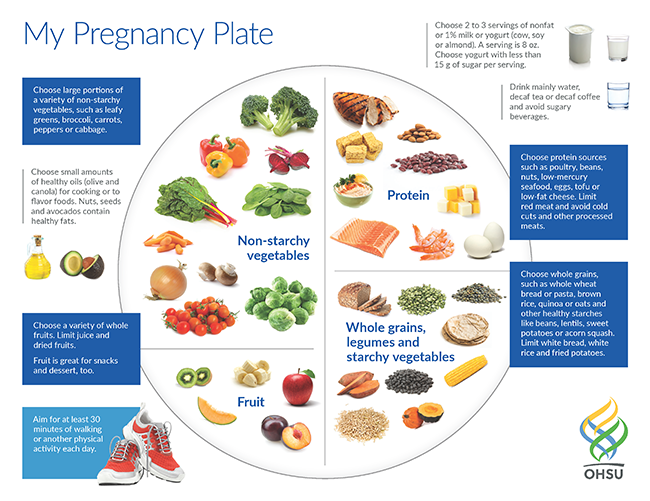
Pregnancy Nutrition: A Comprehensive Guide for Expecting Mothers
Pregnancy is a transformative journey that requires significant nutritional support to ensure the optimal health of both the mother and the developing baby. A well-balanced diet during pregnancy provides the essential nutrients and energy needed for fetal growth, maternal well-being, and the prevention of pregnancy-related complications. This comprehensive guide will delve into the intricacies of pregnancy nutrition, providing expectant mothers with the knowledge and tools to make informed dietary choices throughout their pregnancy.
Nutritional Needs During Pregnancy
The nutritional requirements of pregnant women increase significantly to support the growth and development of the fetus. The following nutrients are crucial during this time:
- Protein: Essential for building and repairing tissues, supporting fetal growth and development.
- Carbohydrates: Provide energy for the mother and the baby, regulate blood sugar levels.
- Fats: Provide energy, support fetal brain development, and aid in the absorption of fat-soluble vitamins.
- Iron: Prevents anemia, supports red blood cell production for both mother and baby.
- Calcium: Builds strong bones and teeth in the baby, maintains maternal bone health.
- Folic Acid: Prevents neural tube defects in the baby, supports cell growth and development.
- Vitamin D: Supports calcium absorption, essential for bone health in both mother and baby.
- Omega-3 Fatty Acids: Support fetal brain and eye development, reduce the risk of preterm birth.
Dietary Recommendations
To meet the increased nutritional needs during pregnancy, expectant mothers should follow these dietary recommendations:
- Consume a variety of nutrient-rich foods: Include fruits, vegetables, whole grains, lean protein, and healthy fats in every meal.
- Increase protein intake: Aim for 71 grams of protein per day, which can be obtained from lean meats, poultry, fish, beans, and tofu.
- Choose complex carbohydrates: Opt for whole grains, brown rice, oatmeal, and fruits instead of refined carbohydrates like white bread and sugary drinks.
- Limit unhealthy fats: Avoid saturated and trans fats found in processed foods, fried foods, and fatty meats.
- Increase iron intake: Consume iron-rich foods such as red meat, beans, lentils, and leafy green vegetables.
- Take a prenatal vitamin: Prenatal vitamins provide essential nutrients that may not be adequately obtained from diet alone.
- Stay hydrated: Drink plenty of water throughout the day, especially during the third trimester.
Foods to Avoid During Pregnancy
Certain foods should be avoided or limited during pregnancy to protect the health of both the mother and the baby:
- Raw or undercooked meat, poultry, and seafood: Can contain harmful bacteria or parasites.
- Raw or unpasteurized milk and cheese: Can contain bacteria that can cause infections.
- Unwashed fruits and vegetables: May carry bacteria or pesticides.
- Fish high in mercury: Limit consumption of tuna, swordfish, and shark, as mercury can harm fetal brain development.
- Alcohol: Avoid alcohol consumption as it can cross the placenta and affect the baby.
- Caffeine: Limit caffeine intake to less than 200 milligrams per day, as excessive caffeine can increase the risk of miscarriage and low birth weight.
Weight Gain During Pregnancy
Healthy weight gain during pregnancy is essential for the well-being of both the mother and the baby. The recommended weight gain depends on the mother’s pre-pregnancy weight and activity level. Generally, women should gain:
- 25-35 pounds for women with a healthy pre-pregnancy weight
- 28-40 pounds for women who are underweight
- 15-25 pounds for women who are overweight
- 11-20 pounds for women who are obese
Special Dietary Considerations
Certain medical conditions or dietary restrictions may require special dietary considerations during pregnancy:
- Gestational Diabetes: Requires a diet that controls blood sugar levels, including frequent small meals, limiting sugary foods, and choosing whole grains over refined carbohydrates.
- Preeclampsia: May benefit from a diet rich in protein, calcium, and magnesium, and low in sodium.
- Vegetarian or Vegan Diet: Requires careful planning to ensure adequate intake of protein, iron, calcium, and vitamin B12.
- Food Allergies: Expectant mothers with food allergies should avoid the offending foods to prevent allergic reactions.
Conclusion
Pregnancy nutrition is a crucial aspect of prenatal care that supports the health and well-being of both the mother and the developing baby. By adhering to the dietary recommendations outlined in this guide, expectant mothers can provide their bodies and their babies with the essential nutrients needed for optimal growth and development. Consulting with a healthcare professional or registered dietitian can provide personalized guidance and address any specific dietary concerns during pregnancy. Remember, a well-balanced and nutritious diet is the foundation for a healthy pregnancy and a thriving future for both mother and child.